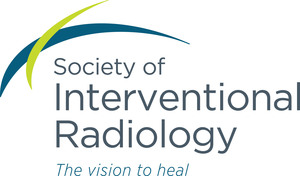Online Submission Open for SIR's Annual Scientific Meeting March 22–27, 2014, in San Diego
FAIRFAX, Va., Aug. 21, 2013 /PRNewswire-USNewswire/ -- Scientific abstracts covering all areas of vascular and nonvascular interventional radiology are being accepted for the Society of Interventional Radiology's 39th Annual Scientific Meeting, which will be held March 22–27, 2014, in San Diego, Calif. The deadline for abstract submission is Oct. 8.
(Logo: http://photos.prnewswire.com/prnh/20100127/SIRLOGO)
SIR's Annual Scientific Meeting offers an array of learning options for a rich and diverse educational experience. As the world's most comprehensive interventional radiology meeting, SIR 2014 will attract more than 5,000 attendees from around the world and will feature more than 400 scientific presentations and 250 hours in educational programming—including new symposia and workshop styles designed to encourage audience/faculty interaction. Researchers may submit abstracts under numerous categories, including arterial interventions (aneurysm/dissection, angioplasty/stent placement and embolization); interventional oncology (ablation, biopsies, chemoembolization and radioembolization); venous interventions (angioplasty/stent placement, embolization, IVC filters and thrombolysis/thrombectomy,); nonvascular interventions (abscess and fluid drainage, biliary, chest, gastrointestinal, genitourinary, gynecology, musculoskeletal and spine); dialysis interventions; education and training; practice management; health care policy; and quality improvement.
SIR 2014's theme, "Convergence," confirms the multidimensional nature of interventional radiology in daily practice and as a global medical specialty. The theme also reflects the diversity of topics that constitute the program and the members of the broader interventional radiology community who converge at the Annual Scientific Meeting to learn, share and network. SIR 2014 sessions will include a range of learning options—covering topics chosen to reflect the scope and breadth of the specialty—and provide attendees with unparalleled access to experts.
Both SIR members and nonmembers may submit abstracts online. Late-breaking abstract submission begins at 9 a.m. (Eastern) Dec. 10 and closes at 5 p.m. (Eastern) Jan. 8, 2014. SIR will notify authors about the status of abstracts in November. All accepted abstracts are published in a special supplement of the Journal of Vascular and Interventional Radiology (JVIR) and on its website. Online meeting registration opens Oct. 1. For more information, contact SIR by phone at (703) 691-1805 or email [email protected].
Research awards to support travel are available through the SIR Foundation for medical students, residents and fellows. SIR's international scholarship grant program enables physicians within 10 years of completion of training who are practicing outside North America an opportunity to train and learn at the Annual Scientific Meeting and fosters professional networking through meeting participation, focused programming, and optional visiting observerships before or after the meeting. Visit SIR's website for more information.
Members of the 2014 Annual Scientific Meeting Committee include Daniel B. Brown, M.D., FSIR, director, division of interventional oncology, Vanderbilt-Ingram Cancer Center, Vanderbilt University, Nashville, Tenn., program chair; John F. Angle, M.D., FSIR, professor of radiology, University of Virginia Health System, Charlottesville, scientific program chair; Jafar Golzarian, M.D., division head, interventional radiology and vascular imaging, University of Minnesota, Minneapolis, workshops chair; Gary P. Siskin, M.D., FSIR, professor and chair, department of radiology, Albany Medical Center, Albany, N.Y., SIR 2013 program chair; and Gail Egan, N.P., Albany Medical Center, Albany, N.Y., SIR 2014 clinical associate liaison.
About the Society of Interventional Radiology
Interventional radiologists are physicians who specialize in minimally invasive, targeted treatments. They offer the most in-depth knowledge of the least invasive treatments available coupled with diagnostic and clinical experience across all specialties. They use X-ray, MRI and other imaging to advance a catheter in the body, such as in an artery, to treat at the source of the disease internally. As the inventors of angioplasty and the catheter-delivered stent, which were first used in the legs to treat peripheral arterial disease, interventional radiologists pioneered minimally invasive modern medicine. Today, interventional oncology is a growing specialty area of interventional radiology. Interventional radiologists can deliver treatments for cancer directly to the tumor without significant side effects or damage to nearby normal tissue.
Many conditions that once required surgery can be treated less invasively by interventional radiologists. Interventional radiology treatments offer less risk, less pain and less recovery time compared to open surgery. Visit www.SIRweb.org. SIR is holding its 39th Annual Scientific Meeting March 22–27 in San Diego. The meeting's theme "Convergence" illustrates the multidimensional nature of interventional radiology and additionally reflects the diversity of program's topics and the members of the broader interventional radiology community who converge at the Annual Scientific Meeting to learn, share and network.
SOURCE Society of Interventional Radiology
WANT YOUR COMPANY'S NEWS FEATURED ON PRNEWSWIRE.COM?
Newsrooms &
Influencers
Digital Media
Outlets
Journalists
Opted In




Share this article